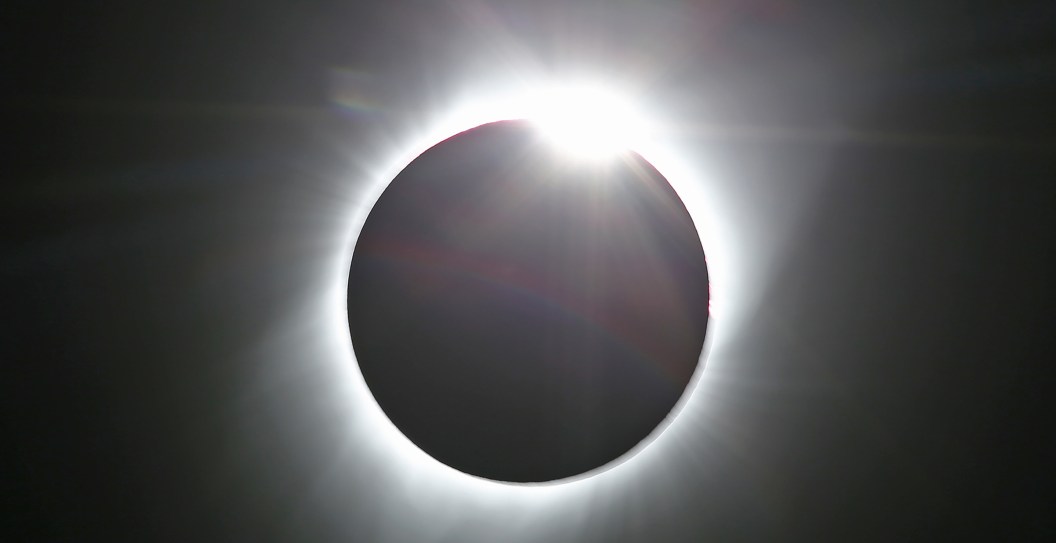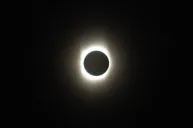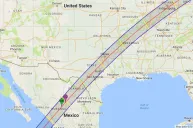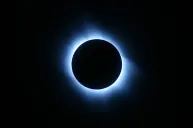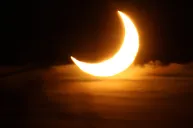Today's the day for a once-in-a-decades solar eclipse. Many Americans are preparing to view the celestial event. If you're worried about missing out then don't worry, we have you covered.
All Your Dying Solar Eclipse Questions Answered
Will the Weather Affect My Solar Eclipse Viewing?
There's nothing worse than some cloudy weather to affect your plans. Cloudy or even rainy weather could effect your view of seeing the solar eclipse. It could block out your view of the sun unfortunately, making those solar glasses null and void. However, the solar eclipse will happen, no matter what the weather is. If you're in the path of totality, then you may notice that the cloud coverage will make things even darker and more abrupt.
But you should still see the effects of the solar eclipse.
When Will The Solar Eclipse Start?
The 2024 solar eclipse is cutting across the middle of the United States. The moon will cause a shadow between the earth and sun, moving from west to east. The exact length of time depends on where you're located. Only these states will experience totality during the solar eclipse:Texas, Oklahoma, Arkansas, Missouri, Illinois, Kentucky, Indiana, Ohio, Pennsylvania, New York, Vermont, New Hampshire, and Maine.
Viewing Times
According to NASA, here are the times for many major cities.
| Buffalo, New York | 2:04 p.m. EDT | 3:18 p.m. EDT | 3:20 p.m. EDT | 3:22 p.m. EDT | 4:32 p.m. EDT |
|---|---|---|---|---|---|
| Burlington, Vermont | 2:14 p.m. EDT | 3:26 p.m. EDT | 3:27 p.m. EDT | 3:29 p.m. EDT | 4:37 p.m. EDT |
| Carbondale, Illinois | 12:42 p.m. CDT | 1:59 p.m. CDT | 2:01 p.m. CDT | 2:03 p.m. CDT | 3:18 p.m. CDT |
| Caribou, Maine | 2:22 p.m. EDT | 3:32 p.m. EDT | 3:33 p.m. EDT | 3:34 p.m. EDT | 4:40 p.m. EDT |
| Cleveland, Ohio | 1:59 p.m. EDT | 3:13 p.m. EDT | 3:15 p.m. EDT | 3:17 p.m. EDT | 4:29 p.m. EDT |
| Dallas, Texas | 12:23 p.m. CDT | 1:40 p.m. CDT | 1:42 p.m. CDT | 1:44 p.m. CDT | 3:02 p.m. CDT |
| Erie, Pennsylvania | 2:02 p.m. EDT | 3:16 p.m. EDT | 3:18 p.m. EDT | 3:20 p.m. EDT | 4:30 p.m. EDT |
| Evansville, Indiana | 12:45 p.m. CDT | 2:02 p.m. CDT | 2:04 p.m. CDT | 2:05 p.m. CDT | 3:20 p.m. CDT |
| Idabel, Oklahoma | 12:28 p.m. CDT | 1:45 p.m. CDT | 1:47 p.m. CDT | 1:49 p.m. CDT | 3:06 p.m. CDT |
| Lancaster, New Hampshire | 2:16 p.m. EDT | 3:27 p.m. EDT | 3:29 p.m. EDT | 3:30 p.m. EDT | 4:38 p.m. EDT |
| Little Rock, Arkansas | 12:33 p.m. CDT | 1:51 p.m. CDT | 1:52 p.m. CDT | 1:54 p.m. CDT | 3:11 p.m. CDT |
| Paducah, Kentucky | 12:42 p.m. CDT | 2:00 p.m. CDT | 2:01 p.m. CDT | 2:02 p.m. CDT | 3:18 p.m. CDT |
| Poplar Bluff, Missouri | 12:39 p.m. CDT | 1:56 p.m. CDT | 1:56 p.m. CDT | 2:00 p.m. CDT | 3:15 p.m. CDT |
The eclipse should begin in parts of Mexico before going across North America.
Do You Need Solar Glasses?
Please do not attempt to look at the solar eclipse without protective eye wear. It could also damage your eyes. "If someone briefly looks at the eclipse, if it's extremely brief, in some cases there won't be damage. But damage can happen even within a fraction of a second in some cases," Dr. Jason P. Brinton, an ophthalmologist, told CBS News.
When Is Another Solar Ecipse?
There won't be another solar eclipse in America until 2033. That will happen in Alaska on March 30, 2033. Ther won't be another one in the continental United States until August 22, 2044. So don't miss it!
